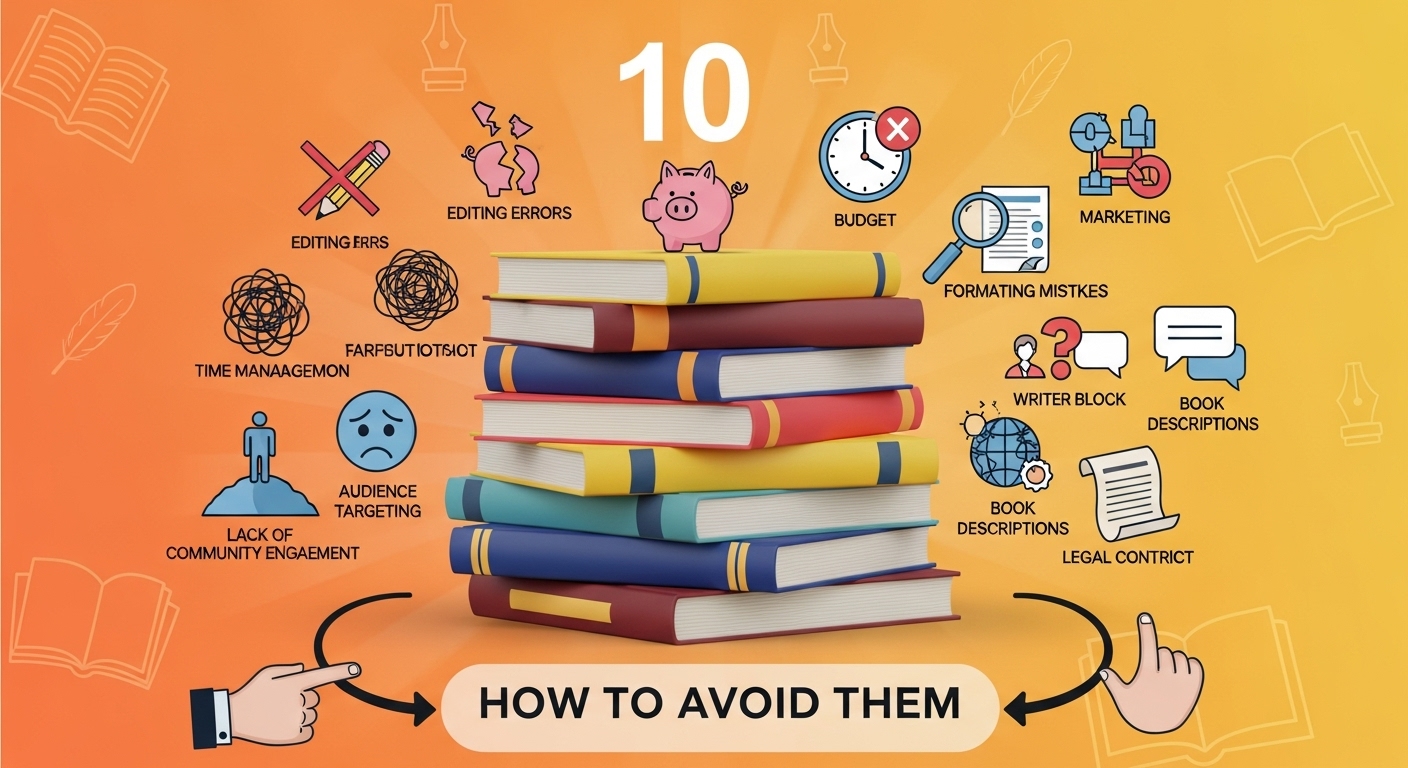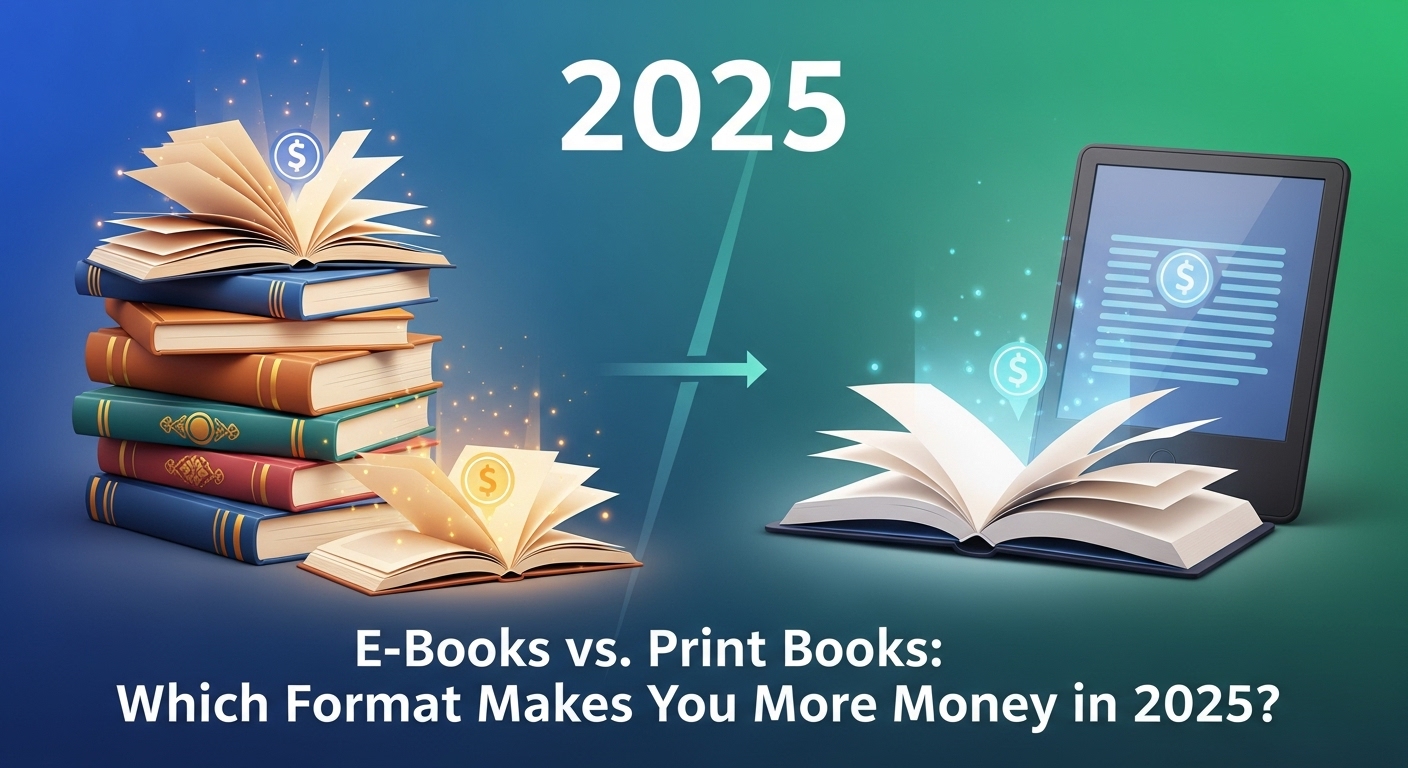Why Your E-Book Niche is Your Most Important Decision
So, you’ve decided to dive into the exciting world of e-books & self-publishing. You have visions of your book cover climbing the bestseller charts and royalty payments hitting your bank account. It’s a fantastic goal, but before you type a single word of your manuscript, there’s a foundational decision you must make—one that can determine whether your e-book soars or sinks without a trace. We’re talking about choosing your niche.
Many aspiring authors believe that a great idea is all it takes. They pour their heart and soul into a topic they love, only to be met with crickets upon launch. Why? Because they skipped the most critical step: niche selection. Choosing the right niche isn’t just about picking a topic; it’s about identifying a specific group of readers with a specific problem or interest and creating a targeted solution for them. It’s the difference between shouting into a crowded stadium and having an intimate, compelling conversation with someone who is eager to listen.
Think of your niche as the foundation of your author business. A strong foundation supports everything you build on top of it—your book, your marketing, your author platform, and your income. A weak or non-existent foundation will cause the entire structure to crumble. In this guide, we’ll walk you through the exact process of finding a niche that is not only interesting to you but also has a built-in audience ready to buy.
The Three Pillars of a Profitable E-Book Niche
A winning e-book niche isn’t just a random topic. It’s a strategic sweet spot where three essential elements overlap. If you can find a niche that satisfies all three of these pillars, you’re well on your way to self-publishing success.
Pillar 1: Passion & Expertise
Let’s be honest: writing a book is hard work. It requires dedication, time, and a lot of mental energy. If you’re not genuinely interested in your topic, that long journey will feel like an unbearable chore. Your lack of enthusiasm will seep into your writing, and readers will notice. Passion fuels persistence. When you love what you’re writing about, you’re more likely to push through writer’s block and complete the project.
Expertise is the other side of this coin. You don’t need a Ph.D., but you do need to know more than your target reader. Your expertise could come from your career, a lifelong hobby, a personal struggle you’ve overcome, or extensive research. When you write from a place of knowledge, your content will have depth, credibility, and value. This builds trust with your readers, making them more likely to buy from you and recommend your work to others.
Pillar 2: Audience Demand
Passion alone isn’t enough. You could be the world’s foremost expert on 18th-century underwater basket weaving, but if no one is looking for information on that topic, you won’t sell any e-books. You must validate that there is an existing audience actively searching for solutions or information related to your niche. Is there a group of people with a burning problem that your e-book can solve? Is there a community obsessed with a particular hobby that your e-book can enhance?
Market demand is non-negotiable. This is where market research becomes your best friend. You need to find evidence that people are already spending money and time in this area. We’ll cover how to do this in detail later, but for now, remember this: don’t create a product and then look for an audience; find an audience and then create a product for them.
Pillar 3: Profitability & Viability
Finally, you need to ensure the niche is commercially viable. This means asking two key questions: Are people willing to pay for information in this niche? And can you realistically compete?
Some topics, while popular, are saturated with free information. It can be difficult to convince people to pay for an e-book on a subject where thousands of blog posts and YouTube videos offer the same advice for free. Look for niches where people are already buying books, courses, or products. This is a strong indicator of a paying audience. Furthermore, assess the competition. A little competition is a good thing—it validates the market. But if a niche is dominated by major publishing houses or incredibly established authors, it might be tough to gain a foothold. The goal is to find a niche with proven demand but also with a gap or a unique angle that you can fill.
A Step-by-Step Guide to Finding Your Perfect Niche
Ready to get your hands dirty? Let’s move from theory to action. Follow these steps to systematically uncover a niche that’s perfect for you.
Step 1: Brainstorm Your Interests, Skills, and Experiences
Get out a pen and paper or open a new document. It’s time to do a personal inventory. Don’t filter yourself; just write. Create three columns:
- Passions & Hobbies: What do you love to do in your free time? What topics do you find yourself reading about or watching videos on for hours? (e.g., sourdough baking, minimalist travel, urban gardening, historical fiction).
- Skills & Expertise: What are you good at? This can be from your job, your education, or self-taught skills. (e.g., project management, coding in Python, public speaking, fixing bicycles, dog training).
- Life Experiences & Problems Solved: What challenges have you overcome? What major life transitions have you navigated? (e.g., paying off debt, navigating a career change, raising a child with allergies, training for a marathon).
Once you have a long list, look for potential overlaps. Could you combine your project management skills with your passion for urban gardening to write a book on ‘Efficient Garden Planning for Small Spaces’?
Step 2: Conduct Deep Market Research
This is where you validate the ideas from your brainstorming session. Your goal is to find evidence of audience demand.
Explore the Amazon Kindle Store
Amazon is the world’s largest bookstore; treat it as your primary research tool. Go to the Kindle Store and browse the categories related to your ideas. Look at the ‘Best Sellers’ lists in those categories. Are books on your topic selling well? Read the reviews—especially the 3-star and 4-star ones. What do readers love? What are they complaining about? These complaints are goldmines for e-book ideas, as they reveal gaps in the market you can fill.
Use Keyword Research Tools
See what people are searching for on Google. Use free tools like Google Keyword Planner or Ubersuggest, or paid tools like Ahrefs. Type in your niche ideas and see the search volume. Look for long-tail keywords (phrases of 3+ words) like ‘how to start a container garden for beginners’. High search volume for these specific phrases indicates a strong demand.
Spy on Online Communities
Where does your potential audience hang out online? Find them on Reddit (subreddits), Facebook Groups, Quora, and niche forums. Lurk and listen. What questions are they asking over and over? What are their biggest frustrations and pain points? This is direct insight into the problems your e-book could solve.
Step 3: Analyze Your Future Competition
Once you’ve identified a promising niche with clear demand, it’s time to size up the competition. Find the top 5-10 e-books in that niche on Amazon. Analyze them:
- Covers and Titles: What makes them stand out? What kind of language do they use?
- Descriptions: How are they positioning their books? What benefits are they promising the reader?
- Table of Contents: Use the ‘Look Inside’ feature to see what topics they cover. What’s missing? Is there an angle they haven’t considered?
- Reviews: As mentioned before, what are the common praises and complaints? This tells you what the market wants more (or less) of.
Your goal isn’t to be intimidated; it’s to find your unique selling proposition (USP). Can you be more comprehensive? More beginner-friendly? More focused on a specific sub-group? Can you offer a unique methodology? This is how you carve out your own space in a crowded market.
Common Niche-Picking Mistakes to Avoid
As you go through this process, be wary of these common traps that ensnare many first-time authors in the e-books & self-publishing space.
Mistake 1: Being Too Broad
A book on ‘Health’ is not a niche. A book on ‘Intermittent Fasting for Women Over 40’ is a niche. The more specific you are, the easier it is to target your audience and become the go-to expert. Don’t try to appeal to everyone; you’ll end up appealing to no one.
Mistake 2: Ignoring the Market
Don’t let your passion blind you to reality. You might love your topic, but if the research shows zero demand, it’s a hobby, not a business. Be objective with your data. The market always wins.
Mistake 3: Fearing All Competition
Seeing other books in your niche is a good sign! It means there’s a paying audience. The key is not to run from competition but to analyze it and find a way to be different and better. No competition at all can sometimes be a red flag that there’s no market demand.
Your Niche Is Your Foundation: Start Building Today
Choosing the right niche is the single most impactful decision you’ll make on your self-publishing journey. It’s the difference between a book that sells for years and one that never gets discovered. By carefully balancing your passion and expertise with proven audience demand and profitability, you set yourself up for success from day one.
Don’t rush this process. Take the time to brainstorm, research, and validate. The work you do now, before you even write your introduction, will pay massive dividends down the road. It will make writing your e-book easier, marketing it more effective, and the entire venture more rewarding.
So, what are you waiting for? Grab that notebook, open those browser tabs, and start exploring. Your perfect, profitable e-book niche is out there waiting for you to claim it.


